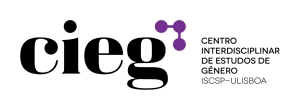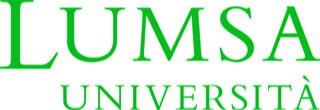Advisory Board

In March 2019, the European Observatory on Femicide lost our great colleague and advisory board member, Anna Costanza Baldry. Anna served as an advisory board member to the Observatory from January 2018 and was previously a member of the COST Action on Femicide across Europe 2014-2017. We honour Anna with a tribute to her life and achievements.
The Advisory Board Members of the European Observatory on Femicide are:
 Christiana Kouta is an Associate Professor at the Department of Nursing at the Cyprus University of Technology. She heads the Master in Advanced Nursing and Community Healthcare. Christiana’s teaching includes Community Nursing, Health Promotion, Transcultural Nursing, and Family Nursing. Christiana’s research combines community and transcultural health related to culture and gender. Currently, she is leading an EU funded project on a knowledge platform on Female Genital Mutilation (FGM). She is also involved in other EU projects related to culturally competent and compassionate healthcare. She was the scientific coordinator within the COST Action on Femicide across Europe and is the secretary of the European Transcultural Nurses Association.
Christiana Kouta is an Associate Professor at the Department of Nursing at the Cyprus University of Technology. She heads the Master in Advanced Nursing and Community Healthcare. Christiana’s teaching includes Community Nursing, Health Promotion, Transcultural Nursing, and Family Nursing. Christiana’s research combines community and transcultural health related to culture and gender. Currently, she is leading an EU funded project on a knowledge platform on Female Genital Mutilation (FGM). She is also involved in other EU projects related to culturally competent and compassionate healthcare. She was the scientific coordinator within the COST Action on Femicide across Europe and is the secretary of the European Transcultural Nurses Association.Ksenia Meshkova comes from St. Petersburg, Russia and lives in Germany since 2007. She is a graduate of St. Petersburg State University, Tartu University, and Erfurt University. She is currently writing her PhD thesis entitled Intimate Partner Violence in Modern Russia, at the Humboldt University in Berlin. Ksenia’s studies have been sponsored by the German Academic Exchange Service and Friedrich Ebert Foundation. Ksenia is an active member and a Young Scholars’ Day organiser of the European Network on Gender Violence (ENGV), which holds an annual conference. In 2018, Ksenia coordinated the 10th European Feminist Research Conference in Gottingen. Currently, Ksenia is teaching at the Protestant University of Applied Sciences in Berlin.
 Monika Schröttle is a professor at the Technical University of Dortmund and is leading research projects for the Institute for Empirical Sociological Research at the University of Erlangen-Nurnberg. She is an expert on violence against women, quantitative prevalence research on violence, disability studies, violence and ethnicity, and empirical human rights research, She is also a coordinator of the European Network on Gender Violence (ENGV), which is a network of more than 400 researchers. Furthermore, she has been coordinating several international working groups on data collection and monitoring of gender based violence in European research networks (in COST Action on Femicide across Europe, Coordination Action on Human Rights Violations – CAHRV). In her last project, Monika developed a Measurement Framework on Violence against Women to be integrated in the Gender Equality Index of the European Institute for Gender Equality (EIGE). Monika is also a country expert of the Academic Network of European Disability Experts (ANED) and prepares national reports on the state of disability policies and the situation of disabled people.
Monika Schröttle is a professor at the Technical University of Dortmund and is leading research projects for the Institute for Empirical Sociological Research at the University of Erlangen-Nurnberg. She is an expert on violence against women, quantitative prevalence research on violence, disability studies, violence and ethnicity, and empirical human rights research, She is also a coordinator of the European Network on Gender Violence (ENGV), which is a network of more than 400 researchers. Furthermore, she has been coordinating several international working groups on data collection and monitoring of gender based violence in European research networks (in COST Action on Femicide across Europe, Coordination Action on Human Rights Violations – CAHRV). In her last project, Monika developed a Measurement Framework on Violence against Women to be integrated in the Gender Equality Index of the European Institute for Gender Equality (EIGE). Monika is also a country expert of the Academic Network of European Disability Experts (ANED) and prepares national reports on the state of disability policies and the situation of disabled people. Athena Peglidou (D.E.A. & PhD, E.H.E.S.S Paris) is assistant professor of Social Anthropology at School of History and Archeology, Aristotle University of Thessaloniki. Her research interests focus on the intersection of gender and health, on structural violence within therapeutic, medical and care institutions, on self-medication, gift-giving and patient autonomy and therapeutic itineraries. She was member of the COST Action (IS1206) ‘Femicide Across Europe” (2013-17), focal point of the E.O.F. and coordinator of the research group of E.O.F. in Greece, https://femicide.gr.
Athena Peglidou (D.E.A. & PhD, E.H.E.S.S Paris) is assistant professor of Social Anthropology at School of History and Archeology, Aristotle University of Thessaloniki. Her research interests focus on the intersection of gender and health, on structural violence within therapeutic, medical and care institutions, on self-medication, gift-giving and patient autonomy and therapeutic itineraries. She was member of the COST Action (IS1206) ‘Femicide Across Europe” (2013-17), focal point of the E.O.F. and coordinator of the research group of E.O.F. in Greece, https://femicide.gr. Dr Marceline Naudi (B.A.,M.A.(Bradford),Ph.D.(Manchester)) is a social worker by profession and a Senior Lecturer and Head of Department of Gender and Sexualities, at the University of Malta. She contributes to teaching and supervision of student research on gender issues, violence against women and other anti-oppressive issues at Diploma, Bachelor, Master and Doctoral level. She acts as Regional Editor of the Journal on Gender Based Violence. Marceline is active on the issues of gender equality and violence against women, LGBTIQ, as well as wider human rights issues, both in Malta and in Europe. She is President of GREVIO, the Council of Europe monitoring body of the Istanbul Convention and has lead EU funded research projects in Malta on the Bystanders Approach to Sexual Harassment, and on Barriers to Reporting for victims of Violence against Women. Marceline is also a member of the WAVE Advisory Board.
Dr Marceline Naudi (B.A.,M.A.(Bradford),Ph.D.(Manchester)) is a social worker by profession and a Senior Lecturer and Head of Department of Gender and Sexualities, at the University of Malta. She contributes to teaching and supervision of student research on gender issues, violence against women and other anti-oppressive issues at Diploma, Bachelor, Master and Doctoral level. She acts as Regional Editor of the Journal on Gender Based Violence. Marceline is active on the issues of gender equality and violence against women, LGBTIQ, as well as wider human rights issues, both in Malta and in Europe. She is President of GREVIO, the Council of Europe monitoring body of the Istanbul Convention and has lead EU funded research projects in Malta on the Bystanders Approach to Sexual Harassment, and on Barriers to Reporting for victims of Violence against Women. Marceline is also a member of the WAVE Advisory Board.

 Maria José Magalhães is a full professor at the FPCEUP, research member of CIEG and CIIE. She is the recipient of the award Carolina Michaelis de Vasconcelos – Research on Women’s Studies (1990). Maria José main field of research involves gender based violence and femicide. She is a coordinator and member of several research projects related to these topics. The projects include: EU funded Bystanders Project on developing bystander responses to sexual harassment among young people, CEINAV project (Cultural Encounters in Interventions against Violence). Maria José was also a member of the COST Action on Femicide across Europe and a scientific coordinator of the Observatory of Murdered Women (OMA-UMAR).
Maria José Magalhães is a full professor at the FPCEUP, research member of CIEG and CIIE. She is the recipient of the award Carolina Michaelis de Vasconcelos – Research on Women’s Studies (1990). Maria José main field of research involves gender based violence and femicide. She is a coordinator and member of several research projects related to these topics. The projects include: EU funded Bystanders Project on developing bystander responses to sexual harassment among young people, CEINAV project (Cultural Encounters in Interventions against Violence). Maria José was also a member of the COST Action on Femicide across Europe and a scientific coordinator of the Observatory of Murdered Women (OMA-UMAR). Santiago Boira Sarto graduated in Psychology from the University of Salamanca and received his PhD from the University of Zaragoza. He is currently a Lecturer in the Department of Psychology and Sociology, and a coordinator of the Master’s degree in gender relations at the University of Zaragoza. Santiago’s research interests focus on gender issues, intimate partner violence, especially in men perpetrators/abusers. He is also a researcher in the Group of Social and Economic Studies of the Third Sector (GESES). Santiago was a member of the COST Action on Femicide across Europe.
Santiago Boira Sarto graduated in Psychology from the University of Salamanca and received his PhD from the University of Zaragoza. He is currently a Lecturer in the Department of Psychology and Sociology, and a coordinator of the Master’s degree in gender relations at the University of Zaragoza. Santiago’s research interests focus on gender issues, intimate partner violence, especially in men perpetrators/abusers. He is also a researcher in the Group of Social and Economic Studies of the Third Sector (GESES). Santiago was a member of the COST Action on Femicide across Europe. Chaime Marcuello Servós is a lecturer in Social Work and Social Services in the Department of Psychology and Sociology at the University of Zaragoza. He is also a professor on the Inter-Doctoral Programme in Science and Humanities for Interdisciplinary Development at the CEICH of the UNAM and the UAdeC (Mexico). In addition, Chaime is the coordinator of the Interdisciplinary Teaching Innovation Group (GIDID) and a co-founder of the Third Sector Social and Economic Studies Group (GESES). He is the president of the RC51 on Sociocybernetics (2014-2018) of ISA. Additionally, Chaime is the editor of Current Sociology Monographs and SISS Books (2016-2019) and co-director of the Iberoamerican Journal of Development Studies.
Chaime Marcuello Servós is a lecturer in Social Work and Social Services in the Department of Psychology and Sociology at the University of Zaragoza. He is also a professor on the Inter-Doctoral Programme in Science and Humanities for Interdisciplinary Development at the CEICH of the UNAM and the UAdeC (Mexico). In addition, Chaime is the coordinator of the Interdisciplinary Teaching Innovation Group (GIDID) and a co-founder of the Third Sector Social and Economic Studies Group (GESES). He is the president of the RC51 on Sociocybernetics (2014-2018) of ISA. Additionally, Chaime is the editor of Current Sociology Monographs and SISS Books (2016-2019) and co-director of the Iberoamerican Journal of Development Studies.Past members
 Consuelo Corradi is a professor of Sociology and vice-chair for research and international relations at Lumsa University. She served as a co-chair of the COST Action on Femicide across Europe. Her research interests include violence against women, femicide, and more recently the cross-national comparison of gender policy regimes across Europe. Her most recent book is entitled The Concept and Measurement of Violence against Women and Men (2017) from the Policy Press. The book was co-authored by S. Walby, J. Towers, S. Balderston, and others. Consuelo was also a vice-president of European Sociological Association from 2007 to 2009.
Consuelo Corradi is a professor of Sociology and vice-chair for research and international relations at Lumsa University. She served as a co-chair of the COST Action on Femicide across Europe. Her research interests include violence against women, femicide, and more recently the cross-national comparison of gender policy regimes across Europe. Her most recent book is entitled The Concept and Measurement of Violence against Women and Men (2017) from the Policy Press. The book was co-authored by S. Walby, J. Towers, S. Balderston, and others. Consuelo was also a vice-president of European Sociological Association from 2007 to 2009. Shalva Weil is a senior researcher at the Hebrew University of Jerusalem. From 2013-2017, Shalva served as chair of the COST Action on Femicide across Europe, heading a management committee of 80 people representing 30 countries. She has addressed the Parliaments of Portugal, Aragon (Spain), and Rome, and spoken at three UN meetings on femicide in Bangkok, New York, and Vienna. She has published over 100 journal articles, including 11 in scientific journals on femicide, and edited special issues on femicide, and several books on Indian Jews, Ethiopian Jews, and other topics. In 2016, Shalva published an article in the Qualitative Sociology Review entitled Failed Femicides among Migrant Survivors. She has contributed to the ACUNS volumes on femicide 3, 4, 6 and 8, where she wrote about the COST Network, femicide of girls in India, and femicide of elderly women in Israel. She is co-editor (with Chaime Marcuello, Consuelo Corradi, and Santiago Boira) of a special issue on Femicide: A Social Challenge in journal Current Sociology (2016), where she also published a single-authored article entitled Making Femicide Visible. Shalva is also co-editor (with Christiana Kouta) of a special issue on Researching Femicide from a Qualitative Perspective in a journal Qualitative Sociology Review (2017). She has also edited (together with Marceline Naudi and Consuelo Corradi) the first book on Femicide in Europe (Policy Press). In the applied field, she runs an empowerment programme for slum migrant women of Caucasian origin in Israel. She has worked among Ethiopian immigrants and researched intimate partner femicide among them in Israel.
Shalva Weil is a senior researcher at the Hebrew University of Jerusalem. From 2013-2017, Shalva served as chair of the COST Action on Femicide across Europe, heading a management committee of 80 people representing 30 countries. She has addressed the Parliaments of Portugal, Aragon (Spain), and Rome, and spoken at three UN meetings on femicide in Bangkok, New York, and Vienna. She has published over 100 journal articles, including 11 in scientific journals on femicide, and edited special issues on femicide, and several books on Indian Jews, Ethiopian Jews, and other topics. In 2016, Shalva published an article in the Qualitative Sociology Review entitled Failed Femicides among Migrant Survivors. She has contributed to the ACUNS volumes on femicide 3, 4, 6 and 8, where she wrote about the COST Network, femicide of girls in India, and femicide of elderly women in Israel. She is co-editor (with Chaime Marcuello, Consuelo Corradi, and Santiago Boira) of a special issue on Femicide: A Social Challenge in journal Current Sociology (2016), where she also published a single-authored article entitled Making Femicide Visible. Shalva is also co-editor (with Christiana Kouta) of a special issue on Researching Femicide from a Qualitative Perspective in a journal Qualitative Sociology Review (2017). She has also edited (together with Marceline Naudi and Consuelo Corradi) the first book on Femicide in Europe (Policy Press). In the applied field, she runs an empowerment programme for slum migrant women of Caucasian origin in Israel. She has worked among Ethiopian immigrants and researched intimate partner femicide among them in Israel.